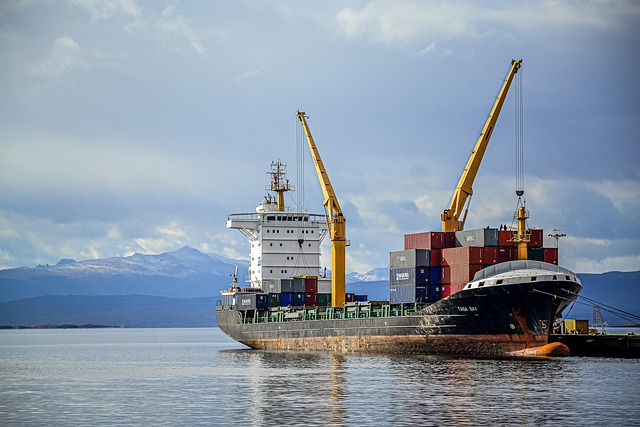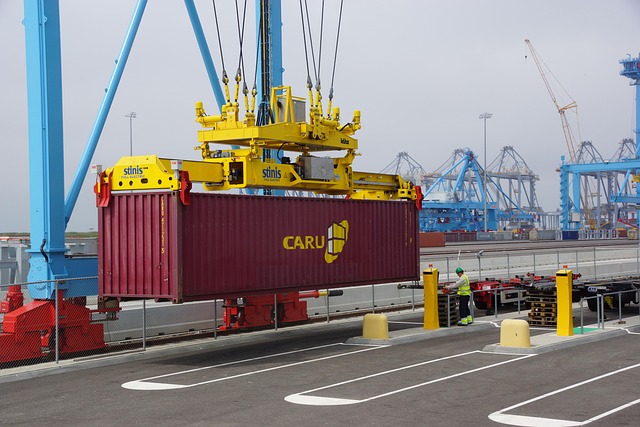Eco-friendly refrigerated storage containers are transforming the traditional cold chain by offering sustainable solutions with natural refrigerants and advanced insulation. With lower Global Warming Potentials (GWPs), these containers reduce environmental impact while maintaining optimal product conditions for diverse industries like food & beverage, pharmaceuticals, and e-commerce. Available in various sizes from portable to custom designs, they cater to flexible needs, promoting cost savings and reduced maintenance with accessible pricing. Businesses can adopt these green options from reputable dealers, lowering carbon emissions and contributing to climate change mitigation.
In today’s sustainable world, the cold chain industry is undergoing a green revolution. We explore an innovative solution: eco-friendly refrigerated storage containers utilizing natural refrigerants. This cutting-edge technology promises enhanced efficiency and reduced environmental impact. From “Eco-Friendly Refrigeration: Natural Solution Unveiled” to “Design Innovations: Sustainable Storage Solutions,” this article delves into how these containers are reshaping the industry, offering a promising path forward for a greener future in refrigerated storage.
- Eco-Friendly Refrigeration: Natural Solution Unveiled
- Storage Containers: Green Revolution in Cold Chain
- Natural Refrigerants: Benefits for Efficient Cooling
- Design Innovations: Sustainable Storage Solutions
- Environmental Impact: Reducing Carbon Footprint
Eco-Friendly Refrigeration: Natural Solution Unveiled

In the pursuit of sustainable solutions, eco-friendly refrigeration systems are gaining prominence, especially in industries reliant on temperature-controlled storage. One such innovative approach is the utilization of natural refrigerants within refrigerated storage containers, offering a greener alternative to conventional methods. These containers, designed with environmental consciousness, play a pivotal role in reducing the carbon footprint associated with cold storage and transportation.
By embracing natural refrigerants, these refrigerated storage containers provide an efficient and eco-conscious solution for various sectors, including food and beverage, pharmaceuticals, and even e-commerce. With options available in diverse sizes, from portable to large-scale units, businesses can choose the ideal fit for their needs. This flexibility, coupled with their energy efficiency, makes them a popular choice among companies seeking sustainable practices without compromising on quality or accessibility.
Storage Containers: Green Revolution in Cold Chain

The traditional cold chain has long relied on energy-intensive and environmentally harmful refrigeration systems, but this is evolving with the rise of eco-friendly refrigerated storage containers. These innovative solutions are at the forefront of a green revolution in the industry, offering sustainable alternatives for temperature-controlled storage. By utilizing natural refrigerants and advanced insulation technologies, these containers significantly reduce carbon footprints while maintaining optimal product conditions.
Refrigerated storage containers, available in various types like portable, modular, and custom designs, cater to diverse needs. You can find options ranging from small, temporary solutions ideal for pop-up events to large-scale, energy-efficient refrigerated warehouses capable of handling significant product volumes. Whether you’re looking to buy a new container or consider used refrigerated storage containers, the market offers competitive prices with dealers specializing in these eco-friendly products. With dimensions and price points varying based on needs, businesses can now access sustainable cold storage solutions tailored to their specific requirements.
Natural Refrigerants: Benefits for Efficient Cooling

Natural refrigerants offer a sustainable and efficient cooling solution for eco-friendly refrigerated storage containers. Unlike traditional synthetic refrigerants, which can have harmful environmental impacts, natural alternatives like ammonia, carbon dioxide, or propane are renewable and have lower Global Warming Potentials (GWPs). This means they contribute less to climate change and help reduce the carbon footprint associated with refrigeration.
In the context of refrigerated storage containers, these natural refrigerants provide several benefits. They offer superior cooling performance, ensuring optimal temperature control for perishable goods. Moreover, natural refrigerants are cost-effective in the long run due to their lower operating expenses and reduced maintenance requirements. Additionally, many modern refrigerated storage container manufacturers are integrating these eco-friendly options, catering to the growing demand for sustainable solutions.
Design Innovations: Sustainable Storage Solutions

In the quest for sustainable solutions, eco-conscious businesses are increasingly turning to refrigerated storage containers as a green alternative. These innovative designs offer more than just environmental benefits; they provide efficient and flexible storage options tailored for various industries, from food and beverage to pharmaceuticals. By utilizing natural refrigerants, these containers reduce carbon footprints significantly compared to traditional refrigerated systems that rely heavily on chemical coolants with high Global Warming Potentials (GWPs).
Modern refrigerated storage containers come in diverse forms, ranging from mobile and portable units ideal for temporary needs to large-scale, modular constructions suitable for permanent cold storage. Customizable features allow businesses to choose container dimensions, insulation levels, and temperature control settings that align perfectly with their specific requirements. This versatility ensures that companies can find the perfect refrigerated storage container or cold storage container to rent or buy, whether they’re looking for a temporary solution during peak seasons or a long-term, energy-efficient refrigerated shipping container to replace outdated warehouse equipment.
Environmental Impact: Reducing Carbon Footprint

One of the significant environmental benefits of eco-friendly refrigerated storage containers is their potential to reduce carbon footprints substantially. Traditional refrigeration systems rely heavily on hydrofluorocarbons (HFCs) and hydrochlorofluorocarbons (HCFCs), potent greenhouse gases that contribute significantly to global warming. These synthetic refrigerants have a high Global Warming Potential (GWP), making them detrimental to the environment. In contrast, natural refrigerants, such as ammonia or carbon dioxide, offer a greener alternative with minimal environmental impact. By adopting these eco-friendly options in refrigerated storage containers, businesses can lower their carbon emissions and contribute to climate change mitigation efforts.
Using renewable energy sources to power these containers further enhances their sustainability. Solar panels or wind turbines integrated into the design can provide clean energy for temperature control, reducing reliance on fossil fuels. This approach not only diminishes the overall environmental footprint but also makes refrigerated storage solutions more accessible and cost-effective, especially in remote areas where traditional infrastructure might be lacking. As a result, businesses can enjoy both ecological benefits and economic advantages when they opt for eco-friendly refrigerated storage containers, such as those available from reputable dealers specializing in portable, modular, or custom units.
The integration of eco-friendly refrigerated storage containers, powered by natural refrigerants, marks a significant step towards a greener and more sustainable cold chain. By adopting these innovative solutions, industries can reduce their carbon footprint while ensuring efficient cooling performance. With ongoing design advancements, the future of refrigerated storage looks promising, offering a compelling path toward sustainability without compromising on quality or functionality. This shift towards natural refrigeration is not only beneficial for the environment but also a smart strategy to stay ahead in an industry that values eco-conscious practices.



